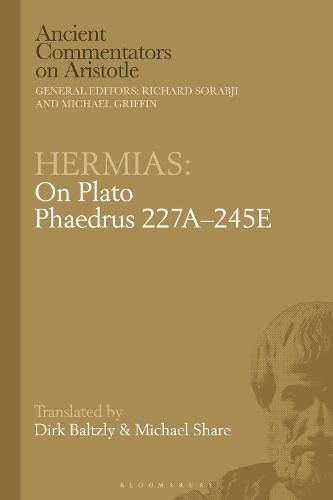Readings Newsletter
Become a Readings Member to make your shopping experience even easier.
Sign in or sign up for free!
You’re not far away from qualifying for FREE standard shipping within Australia
You’ve qualified for FREE standard shipping within Australia
The cart is loading…






This commentary records, through notes taken by Hermias, Syrianus’ seminar on Plato’s Phaedrus, one of the world’s most influential celebrations of erotic beauty and love. It is the only Neoplatonic commentary on Plato’s Phaedrus to have survived in its entirety. Further interest comes from the recorded interventions by Syrianus’ pupils - including those by Proclus, his eventual successor as head of the Athenian school, who went on to teach Hermias’ father, Ammonius.
The first of two volumes of Hermias’ commentary, the chapters translated here discuss the argument that the soul can be proved immortal as being the self-moving source of eternal motion. Aristotle explicitly disagreed with Plato on this treatment of the soul and Syrianus, having previously (in a commentary on the Metaphysics) criticised Aristotle severely when he disagreed with Plato, feels obliged here, too, to address the apparent disagreement. This new translation is thus vital for understanding Syrianus’ attitude to Aristotle.
$9.00 standard shipping within Australia
FREE standard shipping within Australia for orders over $100.00
Express & International shipping calculated at checkout
This commentary records, through notes taken by Hermias, Syrianus’ seminar on Plato’s Phaedrus, one of the world’s most influential celebrations of erotic beauty and love. It is the only Neoplatonic commentary on Plato’s Phaedrus to have survived in its entirety. Further interest comes from the recorded interventions by Syrianus’ pupils - including those by Proclus, his eventual successor as head of the Athenian school, who went on to teach Hermias’ father, Ammonius.
The first of two volumes of Hermias’ commentary, the chapters translated here discuss the argument that the soul can be proved immortal as being the self-moving source of eternal motion. Aristotle explicitly disagreed with Plato on this treatment of the soul and Syrianus, having previously (in a commentary on the Metaphysics) criticised Aristotle severely when he disagreed with Plato, feels obliged here, too, to address the apparent disagreement. This new translation is thus vital for understanding Syrianus’ attitude to Aristotle.